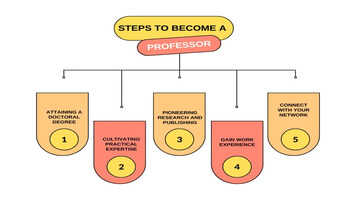Artificial Intelligence in Civil Engineering: How AI is Transforming the Industry
AI changes how civil engineers work by improving designs, speeding up tasks, making sites safer, handling repairs better, also boosting new ideas.Artificial intelligence is no longer something way in the future; it's already rocking the world. In the context of construction, such as building roads or bridges, smart technology changes everything from design to repair. Whether you're just entering the field or upping your game, having an appreciation for how these systems are integral to your work puts you at an advantage over others who may not.
1. AI in Design and Planning
AI is a tool that enables civil engineers to design better with no extra effort, while smart rules of math check a huge number of plans in a very short time, selecting those that are cost-effective and green. Such is the case with building simulations that let professionals test shapes and choices of stuff so things would last longer and cut trash.
2. Construction Automation
Artificially intelligent robots are increasingly showing up at building zones. Some of them lay bricks, while others pour concrete or check the quality of work. Because these systems run automatically, mistakes drop while output goes up, and job sites get safer.
3. Predictive Maintenance
The smart system monitors everything in real time, whether it be bridges, roads, or buildings. Data are collected by sensors regarding the standing of those structures, and then the technology reviews them for early detection of warning signs. In this way, repairs can be done at an earlier stage rather than later, thus reducing costs while providing longevity to the constructions.
4. Project Management and Scheduling
Civil engineering projects require a lot of preparation and accurate timing. Since machines learn from past constructions, current supplies, or predicted changes, they plan smart. That is how teams avoid delays, can manage their expenses better, and complete without delay.
5. Safety and Risk Management
The most important thing when building things is safety. Cameras, drones, or sensors allow AI to detect hazards before they turn into disasters. Warnings appear in real-time scenarios, preventing accidents and adhering to regulations. Even at the design phases, it weighs possibilities for threats versus waiting for an accident to happen.
6. Sustainable and Smart Infrastructure
AI helps in designing greener cities by building homes that consume less power. As it tracks how people move around, traffic flows better. Instead of wasting resources, constant checks on data make systems run smarter. This information helps planners shape neighborhoods more effectively over time.
7. Data-Driven Decision Making
Civil engineering projects produce volumes of data. But AI systems can process all that much more quickly to tease out valuable insights for on-site decisions, from supply choices to construction methods. The machines assist crews in acting fast with real proof for each move.
8. AI in Research and Innovation
AI accelerates studies in civil engineering via scenario modeling while predicting outcomes. That allows builders to test new materials or methods and ideas for designs without any costly real-world tests.
AI modifies the very way we create things: more safety, in less time, and with less damage to nature. Not just designs and cranes, but also maintenance and management — get things quicker with AI, with less risk. Whether you are a student or an established professional in this field, knowing your AI tools can translate into better job prospects and distinction from your competitors.
As India builds out its infrastructure, artificial intelligence is stepping in to help create cities that are sharper, safer, and less wasteful. And those civil engineers using AI? They are the ones who will shape what's next.
Latest Articles

Artificial Intelligence in Civil Engineering: How AI is Transforming the Industry
UniList Desk
Nov 10 2025
The 9 Guiding Principles That Shape Modern Journalism in India
UniList Desk
Nov 10 2025
From Commerce to Law: Your Step-by-Step Guide to Becoming a Lawyer After Class 12
UniList Desk
Nov 10 2025
How to Prepare for IIT JEE 2026: Syllabus Breakdown & Study Plan
UniList Desk
Nov 10 2025
Polytechnic Courses After 10th: Top Colleges, Career Opportunities & Exams
UniList Desk
Nov 09 2025
How to Become a Professor in India: A Complete Step-by-Step Guide
UniList Desk
Nov 09 2025
Top 10 Best Career Options After BBA Without MBA
UniList Desk
Nov 09 2025
Special Education Courses After 12th in India
UniList Desk
Nov 09 2025
Difference Between Broadcast and Print Journalism
UniList Desk
Nov 09 2025
CMA vs CPA: Differences and Similarities in Eligibility, Exam Difficulty, Salary, Job Options
UniList Desk
Nov 08 2025
Learn More, Grow Faster
Get Updates Straight to Your Inbox!